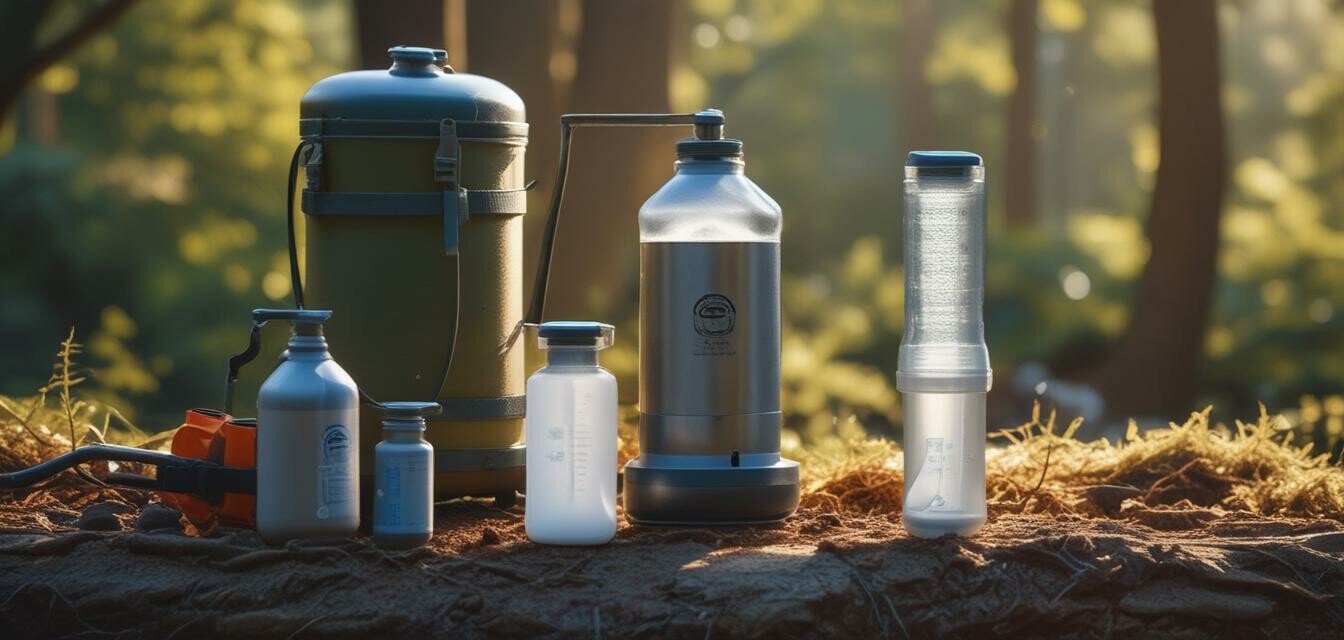
Best Portable Water Filters for Camping
Key Takeaways
- Portable water filters are essential for safe drinking water while camping.
- Types include gravity filters, straw filters, and pump filters.
- Consider factors like filter lifespan, flow rate, and size when choosing.
- Always check for certifications to ensure the filter meets safety standards.
When heading out into the great outdoors, staying hydrated is crucial. But how do you ensure that the water you drink is safe, especially when you're exploring remote areas? Portable water filters are the solution! This guide will help you understand the different types of portable water filters available and what you should look for to make the best choice for your camping adventures.
Why Use Portable Water Filters?
Portable water filters serve several purposes:
- They provide access to clean drinking water.
- They are lightweight and ideal for hiking.
- They reduce the need for bottled water.
Types of Portable Water Filters
Understanding the types of portable water filters available will help you select the one that best meets your needs. Below is a table describing the main types:
| Type | How It Works | Pros | Cons |
|---|---|---|---|
| Gravity Filters | Uses the force of gravity to pull water through a filter. | Easy to use, high capacity. | Slower filtration speed. |
| Straw Filters | Sip water directly through a filter. | Lightweight, portable. | Limited output, not suitable for storing large amounts. |
| Pump Filters | Manually pumps water through a filter. | Fast filtration, can filter large amounts. | Heavier and requires effort to use. |
Key Features to Consider
When selecting a portable water filter, keep the following features in mind:
- Filter Lifespan: Look for filters that can purify a significant number of gallons before needing replacement.
- Flow Rate: Some filters work faster than others. A higher flow rate can come in handy during group trips.
- Size and Weight: Ensure the filter is portable and doesn’t add much weight to your gear.
- Ease of Use: Choose a filter that is simple to set up and use, especially if you're a beginner.
- Certifications: Look for filters that are certified to remove pathogens and contaminants.
How to Use a Portable Water Filter
Using a portable water filter typically involves the following steps:
- Locate a water source.
- Set up the filter according to the manufacturer’s instructions.
- Collect water into the reservoir or container.
- Allow the water to filter through before drinking.
FAQs About Portable Water Filters
Here are some commonly asked questions about portable water filters:
- Can you filter out all contaminants? Most portable filters can remove pathogens, but you should check for specific filtration capabilities.
- How often should I change the filter? Follow manufacturer's guidelines; filter life varies widely by model.
- Are they suitable for all types of water? Generally, yes, but filtering heavily contaminated water may require additional steps.
Conclusion
Choosing the right portable water filter is essential for your camping experience. Whether you're hiking in the mountains or camping by a lake, having access to safe drinking water can make your trip more pleasurable. Take your time to evaluate the options available and choose a filter that suits your needs. For more tips on camping gear, check out our Camping Buying Guides.
Pros
- Provides clean drinking water from natural sources.
- Reduces plastic waste from bottled water.
- Lightweight and portable options are available.
Cons
- Some filters are not effective against all contaminants.
- May require regular maintenance and replacements.
- Initial cost can be higher than buying bottled water.
Tips for Beginners
- Practice using your filter at home before your trip.
- Always have a backup method of obtaining water.
- Stay informed about local water quality issues when camping.